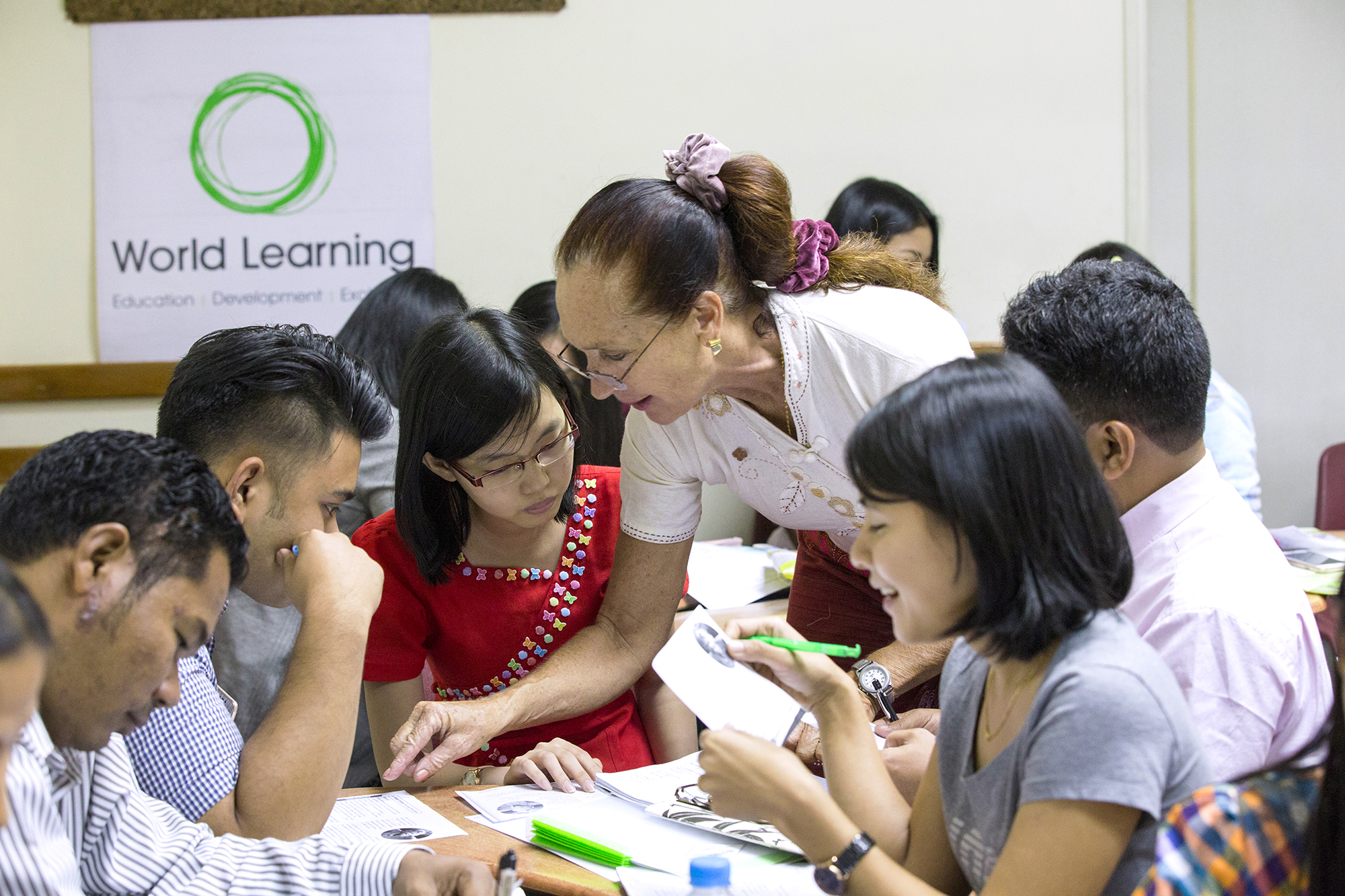-
What We Do
- WHERE WE WORK
-
About Us
 Welcome Message from Carol Jenkins
Welcome Message from Carol JenkinsFor more than 90 years, World Learning has equipped individuals and institutions to address the world’s most pressing problems. We believe that, working together with our partners, we can change this world for the better.
On my travels, I’ve had the opportunity to meet with many of those who have joined us in this mission. In Baghdad, we’ve trained more than 2,300 Iraqi youth who are already giving back at home. In London, our partners in the TAAP Initiative strongly believe that we are all responsible to practice inclusion. And in Vermont, our Experiment in International Living and School for International Training participants prove every day that they have the tools and the determination to change the world.
Please join us in our pursuit of a more peaceful and just world.
- Get Involved

What We Do > Program Area
Capacity Strengthening
At World Learning, we believe investing in the capacity strengthening of local organizations is not just a strategic imperative; it is a transformative activity that empowers communities, fosters sustainable development, and enhances the resilience of grassroots initiatives.
For decades, World Learning has actively engaged in institutional capacity strengthening for government institutions, civil society organizations, higher education institutions, and the private sector. We provide demand-driven, targeted support to help equip our local partners to adapt to challenges, address their needs, and sustainably contribute to social and economic development.
We recognize that there is no ‘one size fits all’ approach to capacity strengthening. We partner with local actors, ensuring they are in the lead of defining priorities and goals, co-identifying tools to maximize the impact in their communities and countries, and articulating metrics of success. Our approaches are tailored depending on the specific needs identified and whether we work with individual organizations, networks, or systems.
Our Tools and Approaches
Organizational level: World Learning’s exclusively designed Participatory Institutional Analysis (PIA) framework guides organizations through a facilitated self-assessment where entry-level to leadership staff explore and reflect on capacity gaps across governance, operations, human resources; financial management, communications, and external relations; monitoring, evaluation, and learning; and service delivery. Organizations use this analysis to define and prioritize needed changes, develop a concrete capacity plan, and put their plans into action. In addition to using the PIA with organizations focused on agriculture, health, advocacy, and public education, we have also adapted the PIA for higher education institutions and the private sector. With PIA, we have strengthened hundreds of institutions in countries such as Angola, Armenia, the Bahamas, Ethiopia, Jamaica, Liberia, Mozambique, Lebanon, Mexico, Laos, Indonesia, and the United States.
Network level: World Learning’s exclusively designed Local Expertise Advancing Development (LEAD) uses a strengths-based approach to match local organizations’ needs and areas of expertise. The model shifts the dependence from external facilitators to a deep recognition of local proficiency across a country or region, elevating local actors as the facilitators of knowledge exchange and encouraging stronger local networks. This leads to more sustainable development. In addition, we pay special attention to inclusion, engaging small, community-based organizations that work with individuals who might normally be marginalized or excluded, along with larger organizations that represent a diversity of voices.
Systems level: The goal of Human and Institutional Capacity Development (HICD) is to help complex institutions and systems improve performance by identifying and addressing fundamental causes of performance gaps. HICD recognizes that many of the biggest levers for performance improvement are often hidden behind processes, as opposed to individuals and specific competencies. Through HICD, local actors analyze structures and processes that are hindering performance and develop action plans. Resulting HICD initiatives strengthen an institution’s systems and processes, as well as its team members’ abilities to provide effective services and respond to complex challenges. Through HICD, World Learning has strengthened education and health systems in countries such as Kosovo, North Macedonia, Georgia, and Lebanon.





